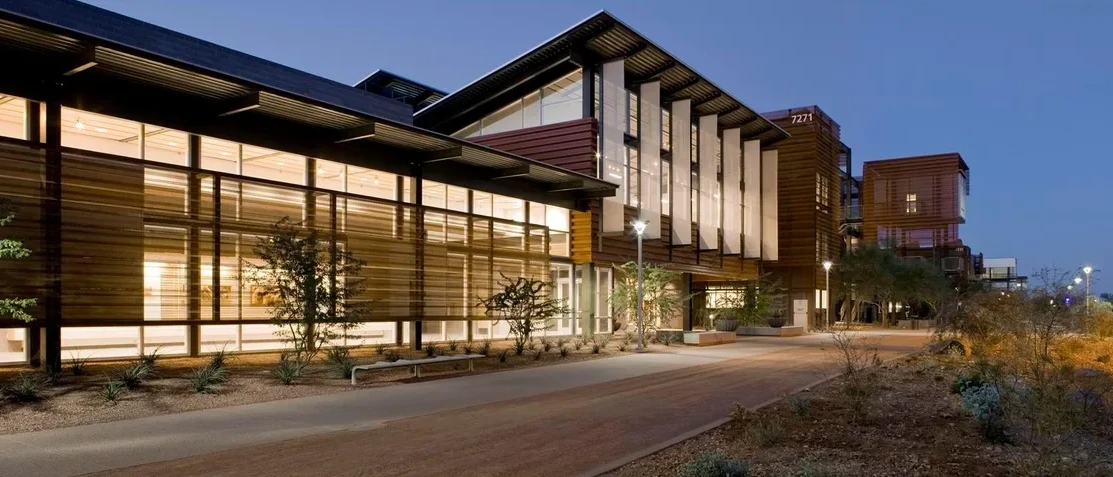

Arizona State University (Polytechnic Campus)
Applied Biological Sciences, MS
Study detals
: Master's degree : Applied Biological Sciences, MS TSAPBIOSMS : Full time : 24 MonthRequirements
- Applicants must fulfill the requirements of both the Graduate College and the College of Integrative Sciences and Arts.
- Applicants are eligible to apply to the program if they have earned a bachelor's or master's degree from a regionally accredited institution.
- Applicants must have a minimum cumulative GPA of 3.00 (scale is 4.00 = "A") in the last 60 hours of their first bachelor's degree program, or a minimum cumulative GPA of 3.00 (scale is 4.00 = "A") in an applicable master's degree program.
All applicants must submit:
- graduate admission application and application fee
- official transcripts
- resume
- statement of intent
- three letters of recommendation
- proof of English proficiency
Additional Application Information
An applicant whose native language is not English must provide proof of English proficiency (TOEFL 80 (no band below 20) (IELTS 6.5 at least 6.0 in all skills)) regardless of their current residency.
Applicants are expected to have completed 18 credit hours in biological sciences and closely related courses. Specific fields of study may have specific expectations regarding courses taken at the undergraduate level. Applicants not meeting these course requirements may be considered for admission with deficiencies.
The statement of intent should not exceed 600 words and should explain the applicant's interest in environmental resources, as well as their academic background and educational objectives.
The letters of recommendation should be from references who are qualified to comment on the applicant's potential in the selected area of study.
Department faculty evaluate the applications and supporting materials and recommend to Admission Services whether the applicant should be granted admission, either regular or provisional, or denied admission. If admission is provisional, the Graduate College specifies in its letter of admission the provisions that need to be met to gain regular status. The school informs successful applicants of the procedures for enrollment.
Speciality
This program may be eligible for an Optional Practical Training extension for up to 24 months. This OPT work authorization period may help international students gain skills and experience in the U.S. Those interested in an OPT extension should review ASU degrees that qualify for the STEM-OPT extension at ASU's International Students and Scholars Center website.
The OPT extension only applies to students on an F-1 visa and does not apply to students completing a degree through ASU Online.
Additional information
The MS program in applied biological sciences offers advanced instruction in the ecology and sustainable management of natural and urban ecosystems. Rigorous programs of study involving field and laboratory work are custom-designed to apply ecological or biological principles to problems in species or ecosystem conservation. All programs culminate with the completion of a research-based thesis or applied project.
The program is supported by faculty members with backgrounds in:
- desert horticulture
- ecological restoration
- environmental microbiology
- environmental stress physiology
- plant-fungal ecology
- plant systematics
- riparian and stream ecology
- wildlife biology
Accelerated program options
This program allows students to obtain both a bachelor's and master's degree in as little as five years. It is offered as an accelerated bachelor's plus master's degree with:
- Applied Biological Sciences (Applied Biological Sciences), BS
- Applied Biological Sciences (Applied Ecology and Preveterinary Medicine), BS
- Applied Biological Sciences (Natural Resource Ecology), BS
- Applied Biological Sciences (Preveterinary Medicine), BS
- Applied Biological Sciences (Secondary Education in Biology), BS
- Applied Biological Sciences (Sustainable Horticulture), BS
Acceptance to the graduate program requires a separate application. Students typically receive approval to pursue the accelerated master’s during the junior year of their bachelor's degree program.
Professionals with expertise in the study of evolution, natural history and conservation of plants and animals are in high demand across sectors and industries, including county and state organizations, as well as in community management. Those with skills in laboratory work, field research and data analysis are valuable to businesses and institutions building deep connections within leading scientific and technological industries to create innovative solutions to challenging global problems in a technologically focused world. Studying biology can lead to a wide range of careers, such as research, teaching, health care and policy development.
Career examples include:
- biologists
- fish and wildlife biologists
- medical scientists
- natural science managers
- postsecondary biological science teachers